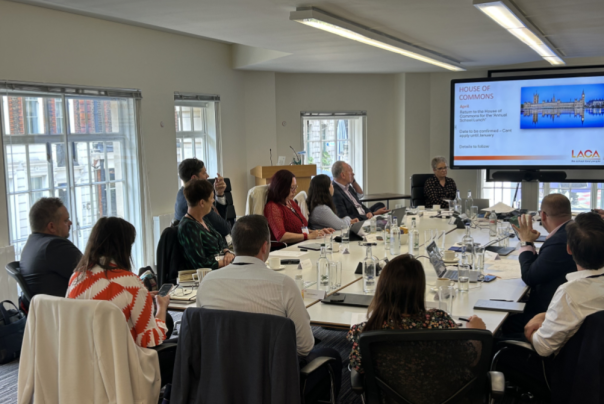Agreement on future focus for school meals at LACA roundtable

Meeting on 18th September in Covent Garden, the discussion was led by LACA chair Judith Gregory and vice chair Michael Hales who were keen to hear from members how they wanted to approach the Labour Government’s manifesto pledge to fund school breakfasts.
The table was shown research gathered by LACA in a July survey of members who were asked how they felt about the universal provision of school breakfasts as promised by Labour in its pre-election manifesto.
Responses from meal providers representing around 14,000 UK schools was mixed, with 40.7% agreeing and 39.5% disagreeing with the idea of universal breakfasts. In contrast, when asked if funding could instead be diverted to level up school lunch provision, 72.1% of providers supported this idea compared with just 9.3% who did not.
The panel discussed the challenges a breakfast provision would present, as well as the huge funding pressures they continue to face in delivering school meals.
The table heard how a funding figure of in excess of £3 per meal was being proposed as an amount that would allow meal standards to increase as well as meet demands for decent wages and pensions for catering staff.
Lee Petar of Menara Advisors gave a presentation on the current situation in the new Government and its priorities.
With broad agreement among members that more than £3 - presented with evidence to support the uplift - represented a strong shared message for lobbying Government, Lee invited everyone to contact their new MPs to explain the issues and challenges that members face, as well as highlighting the value of school meals for the nation’s health.
Petar said: “I think it's incumbent on everyone around this room to engage with their local politicians, to invite them in to see what's going on, to talk to them, just engage on a very broad level. I always think it's better to do more than less. It's not always perfect. But you know what? No one else is going to do it and there are no more grown-ups in the room other than us. So we have to buy them in.”
